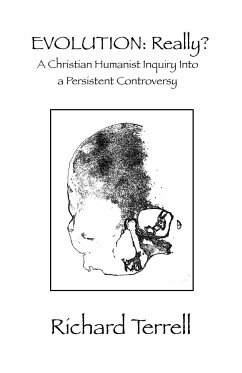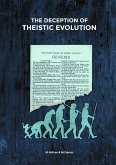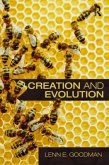Why is it that 150 years after the celebrated appearance of Charles Darwin's evolutionary vision, reasonable people-laity and professional scientists alike-remain skeptical toward it? Does Darwinian science, as various "new atheists" assert, nullify the rationality of theistic belief? What is the nature of Evolutionism as a worldview with religious implications? Author Richard Terrell explores these fundamental questions and more, from the standpoint of the Humanities, arguing that the issues of life's origin, human nature, and human destiny call for a larger arena of discussion than can be provided by science alone. He rejects popular notions that science has put an irrefutable barrier in the path of theistic belief, and casts light on how the evolutionary vision of life-expressed as scientific materialism-constitutes a religious worldview of its own with questionable implications for the human condition. Along the way, Terrell considers the thoughts of such classic evolutionary thinkers as Ernst Haeckel, Julian Huxley, George Gaylord Simpson, and Theodosius Dobzhansky, along with more contemporary thinks like Richard Dawkins and other "new atheists." Drawing upon the rich historical storehouse of affirmation and skepticism concerning Darwinism, Terrell argues that opposition to Darwinian beliefs is not confined to religious objections, but that the most serious challenges have come from scientists. Surprisingly, this "minority report" has existed through all the years of Darwinian cultural ascendancy, and is gaining in strength today. Here is a challenge to encourage students' free inquiry into Darwinian doctrine and cultural influence free of dogma and intimidation.
Hinweis: Dieser Artikel kann nur an eine deutsche Lieferadresse ausgeliefert werden.
Hinweis: Dieser Artikel kann nur an eine deutsche Lieferadresse ausgeliefert werden.








